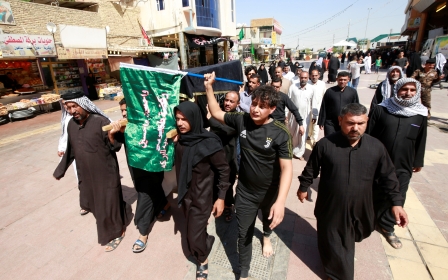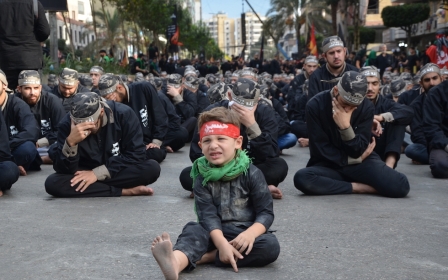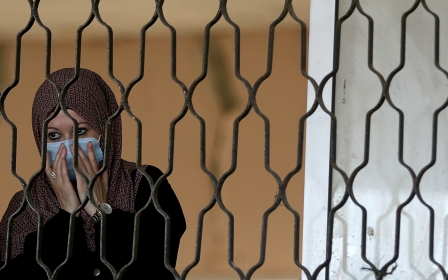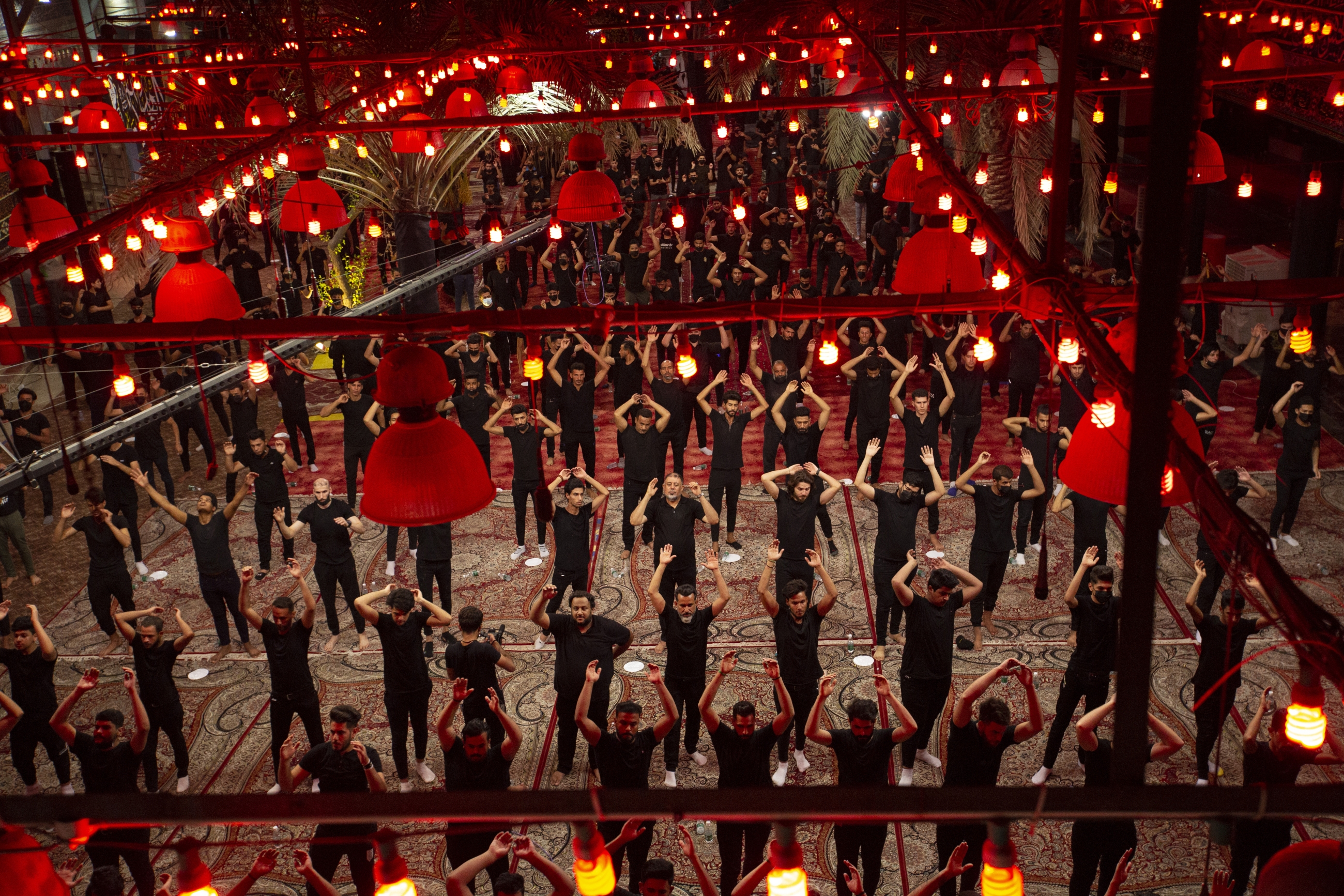
In pictures: Shia worshippers mark Ashura amidst coronavirus
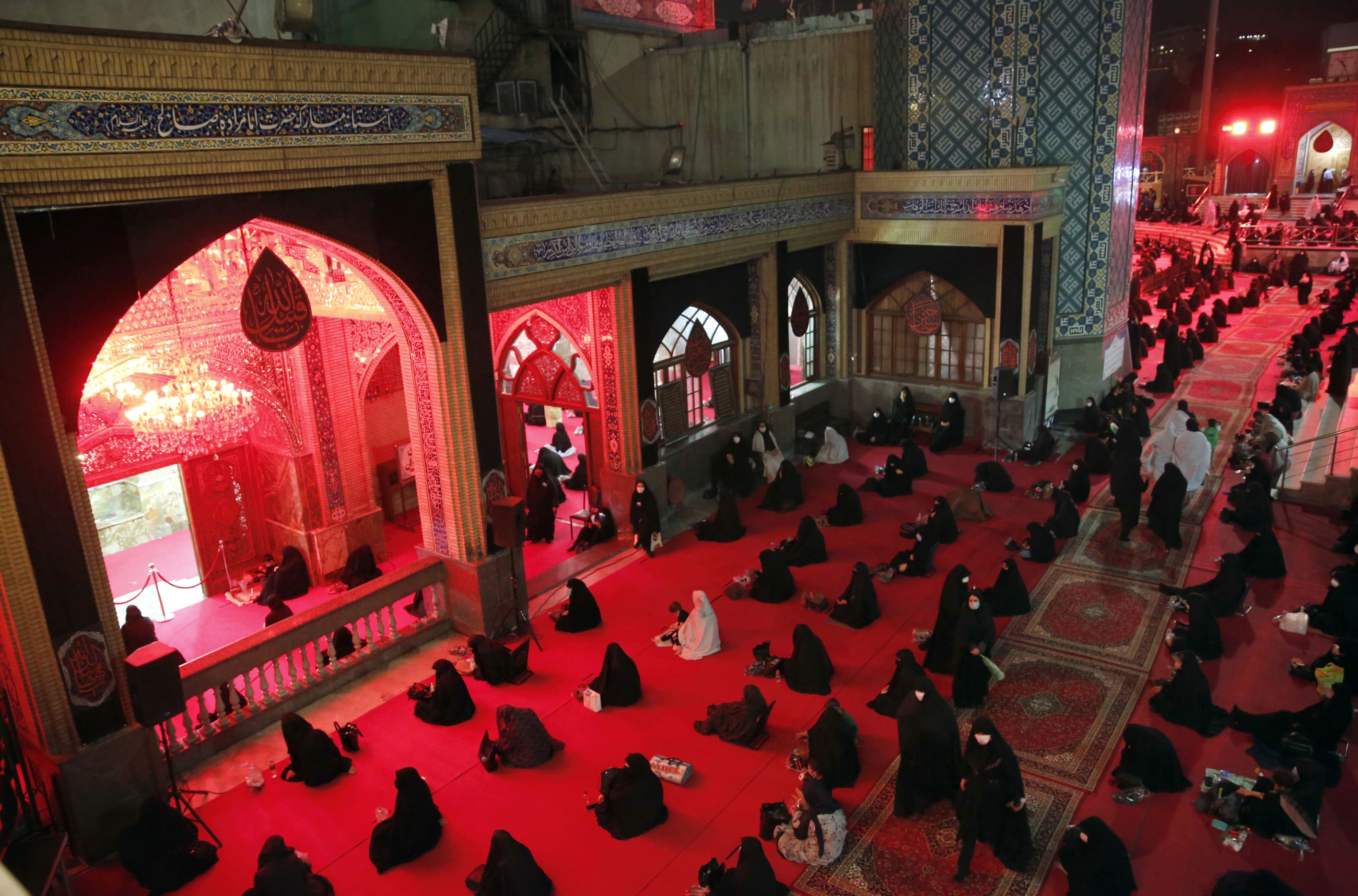
This year, Shia worshippers have been forced to commemorate Ashura in a more subdued manner than usual, amidst fears of a surge of coronavirus cases. Ashura is one of the most important events in the Islamic calendar, marking a time of mourning of the death of the Prophet Muhammad's grandson, Hussein, at the battle of Karbala in 680 CE. (All photos AFP)
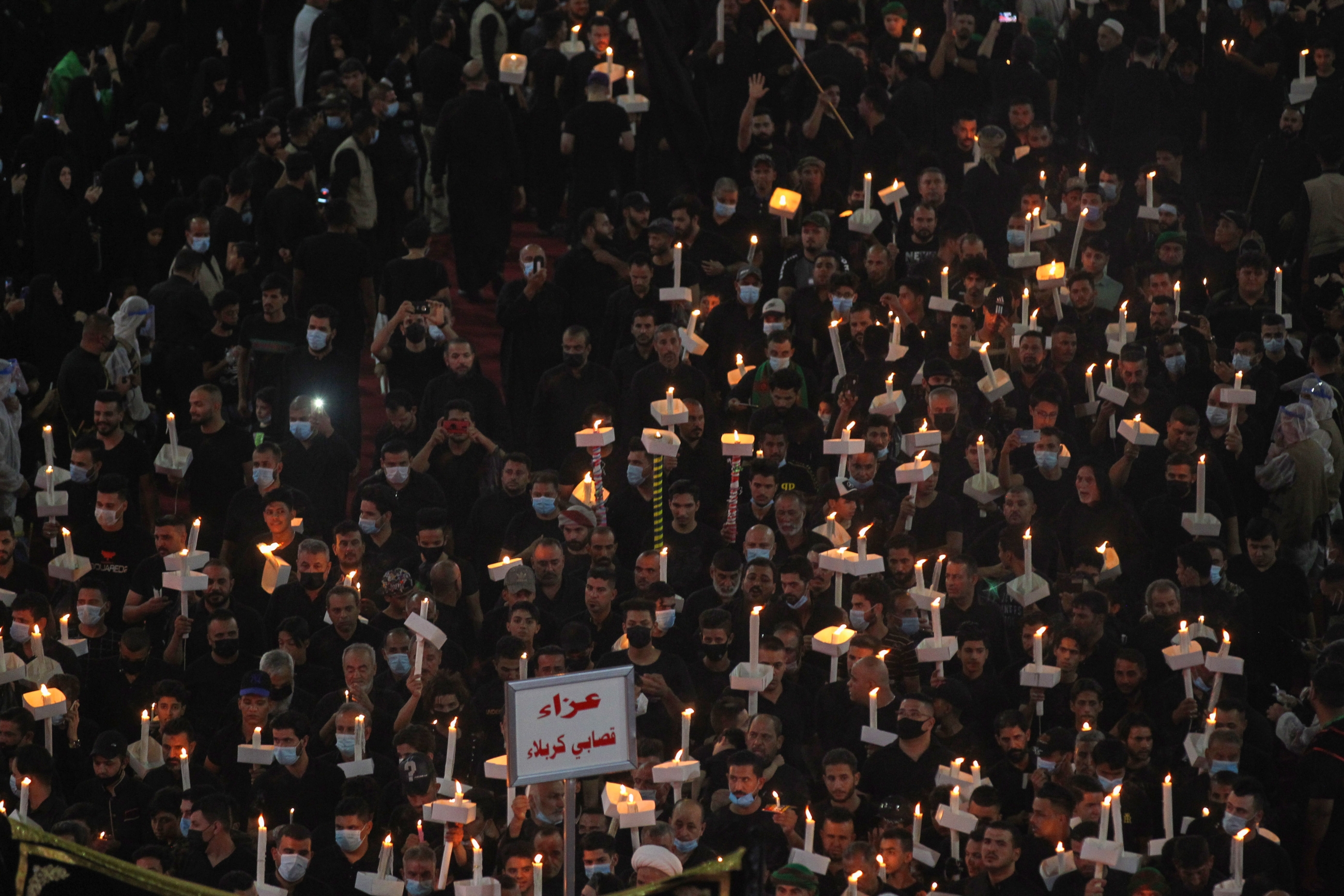
Millions of Shia pilgrims will typically mark the occasion by taking part in processions, marches and re-enactments of the battle. Some worshippers symbolise the suffering of Hussein by taking part in self-flagellation and visiting his shrine in Karbala, Iraq. Last year, 31 worshippers were killed in a stampede in Karbala.
However, this year, commemorations of the event have been subdued, as worshippers have to practice social distancing.
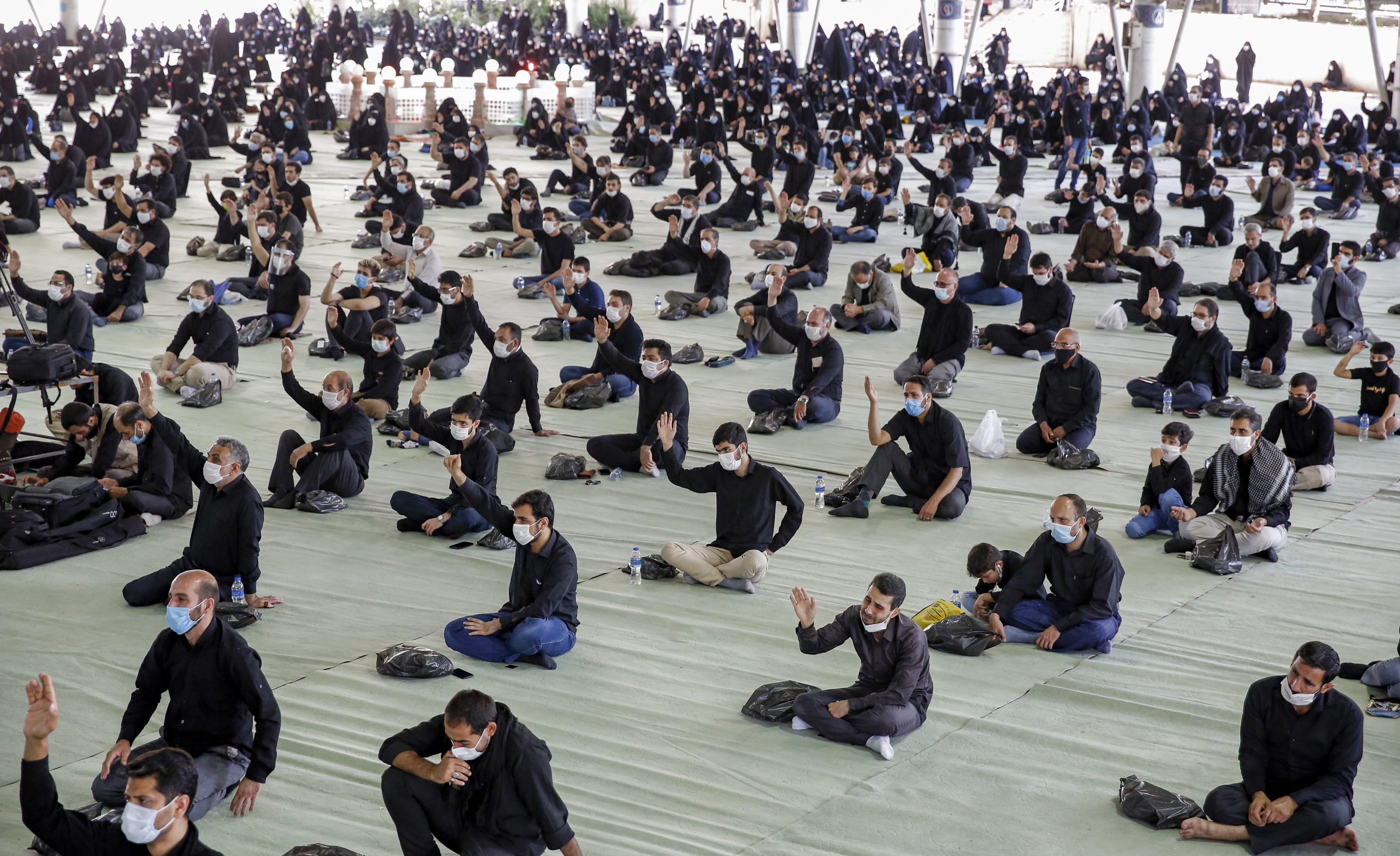
In order to lessen the risk of the virus spreading, many shrines have taken precautions by checking the temperatures of worshippers and marking the floor to indicate the distance required between each person.
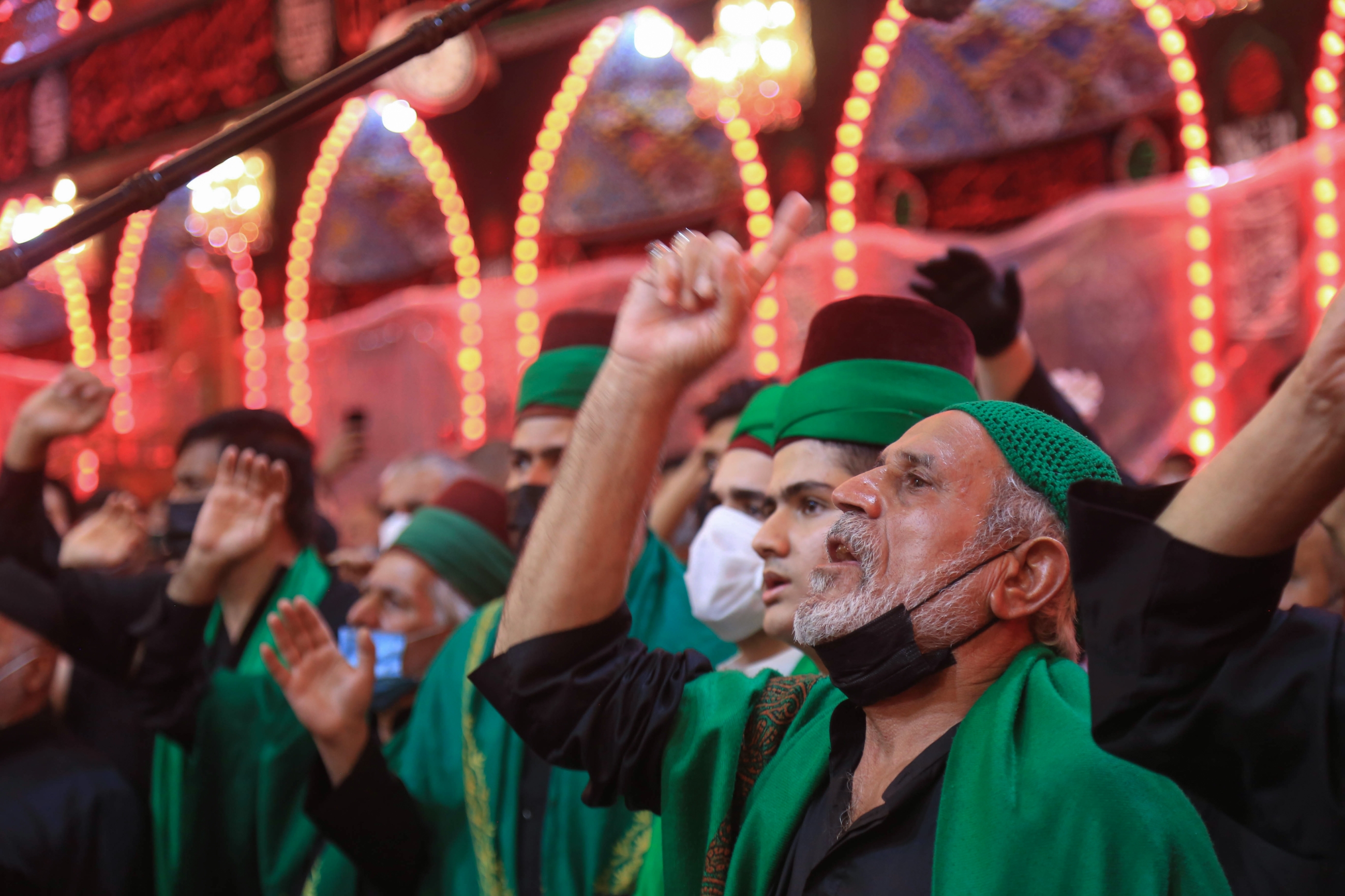
Last week, the World Health Organisation (WHO) warned people against large gatherings and said that Iraq should take necessary action to prevent any virus outbreaks. According to the WHO, Iraq has seen a spike in cases, with Karbala recording over 300 cases on 21 August, the day the month of Muharram began. Muharram, the first month in the Islamic calendar, is held to be one of the most sacred.
One resident of Baghdad, Abu Ali, told AFP that he didn't want to take the risk of going to Karbala, and would instead be observing the event at home. "My children, grandchildren and I go to Karbala every year, but this year we were afraid of corona. Imam Hussein wouldn't want us to throw ourselves into an inferno," he said.
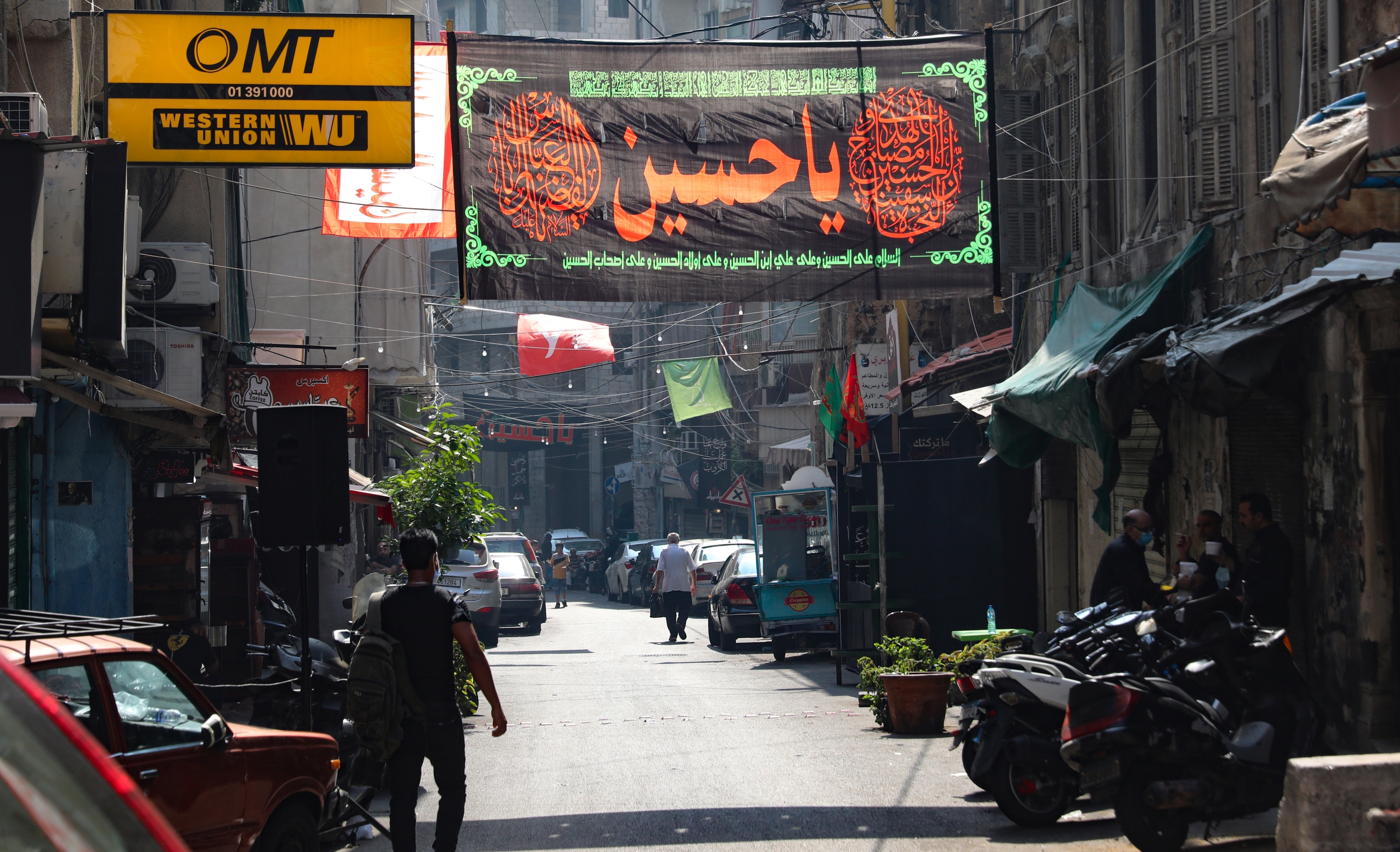
In Lebanon, large Ashura processions, which would typically see hundreds of thousands of people take part, were scaled down or cancelled. Lebanon has recently seen a surge in coronavirus cases as hospitals have been overwhelmed with patients following the devastating blast in Beirut port on 4 August.
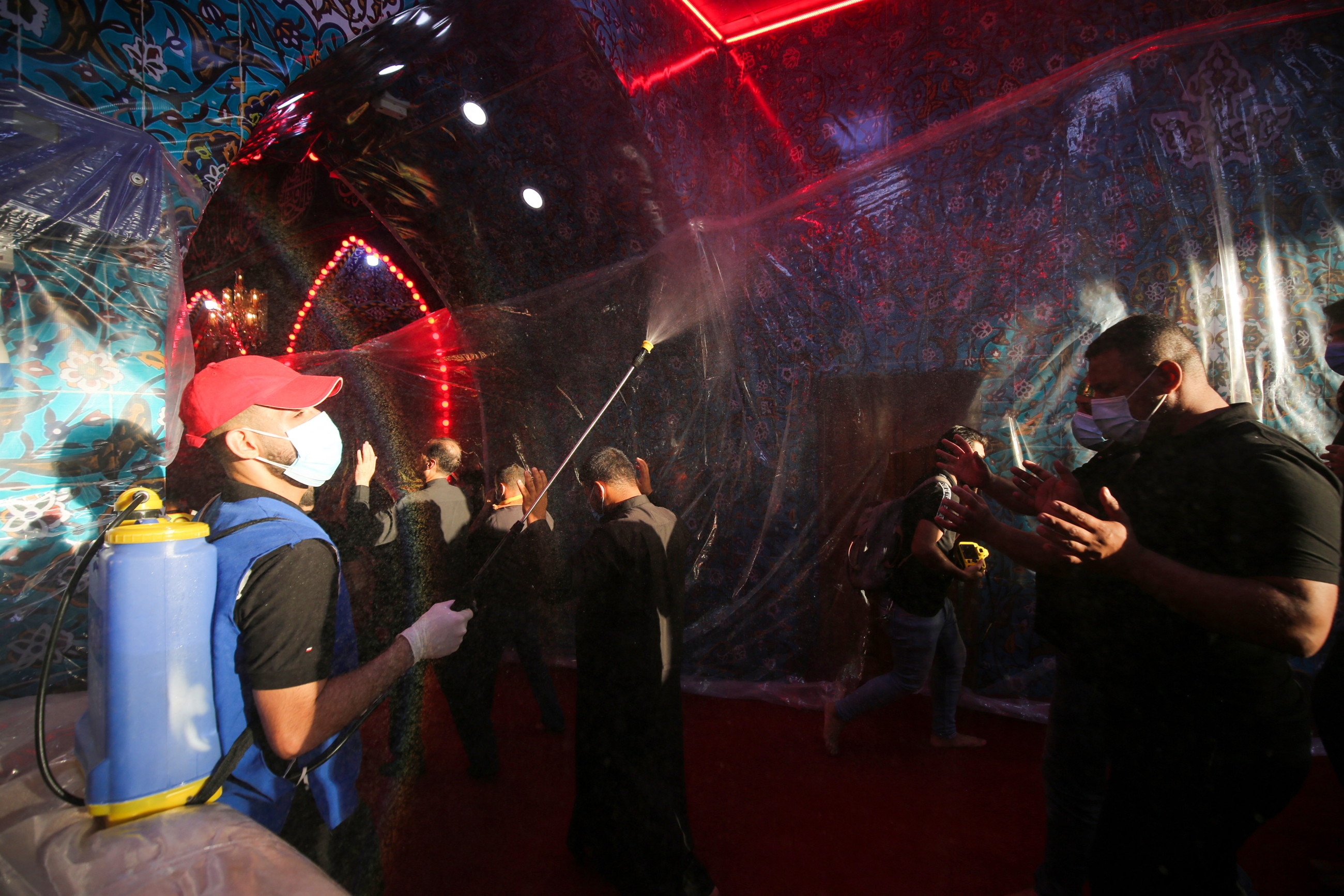
Employees sprayed disinfectant mist through lines of worshippers, who were dressed in black clothing to represent mourning, along with protective face masks and gloves.
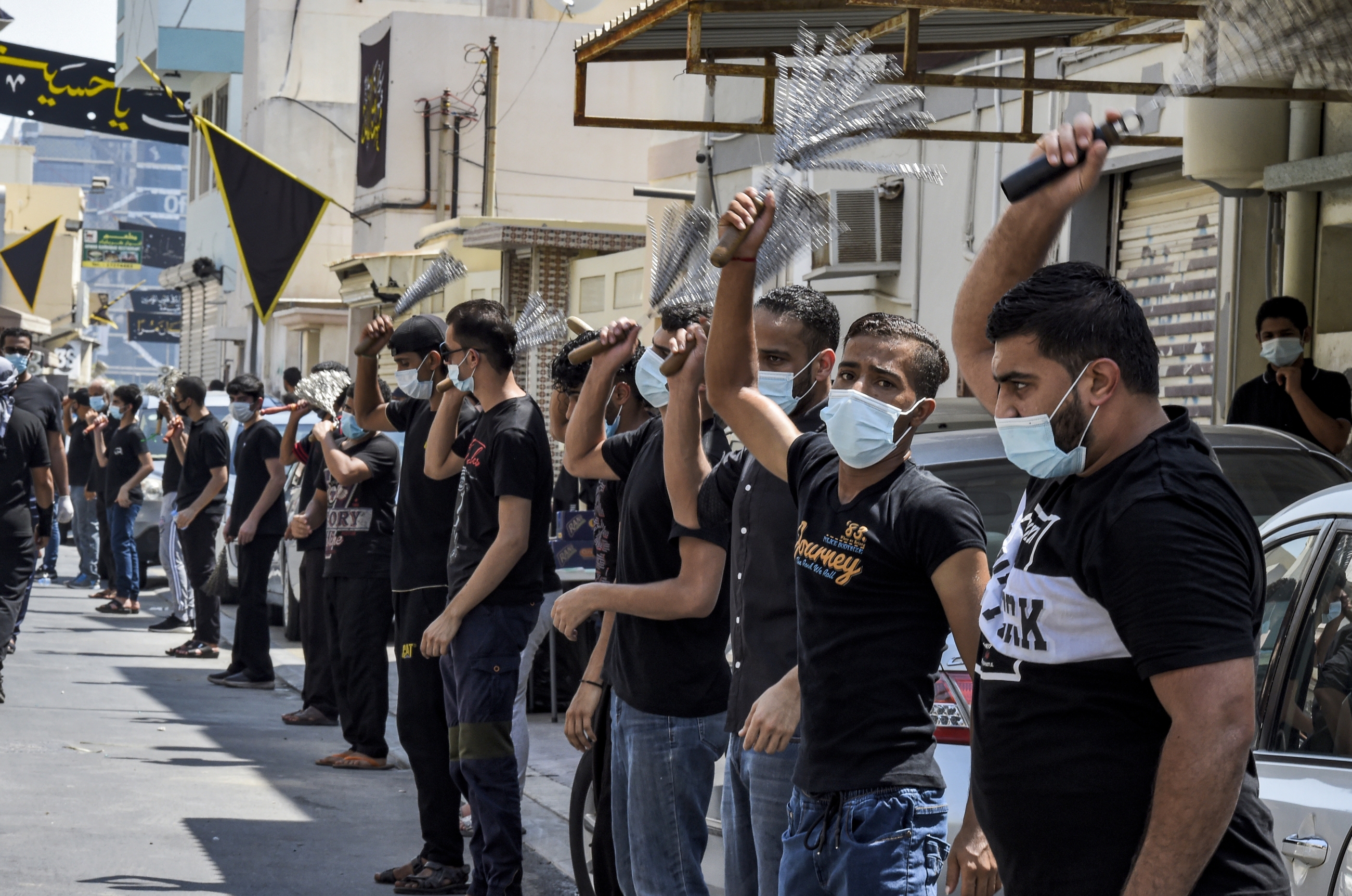
Many worshippers and families have chosen to mark the event in a subdued manner, by observing the occasion at home. Iran has banned the usual Ashura marches, indoor ceremonies and musical performances, instead broadcasting the religious rituals on state television.
In Bahrain, men dressed in black took part in marches while wearing protective masks.
Middle East Eye propose une couverture et une analyse indépendantes et incomparables du Moyen-Orient, de l’Afrique du Nord et d’autres régions du monde. Pour en savoir plus sur la reprise de ce contenu et les frais qui s’appliquent, veuillez remplir ce formulaire [en anglais]. Pour en savoir plus sur MEE, cliquez ici [en anglais].


